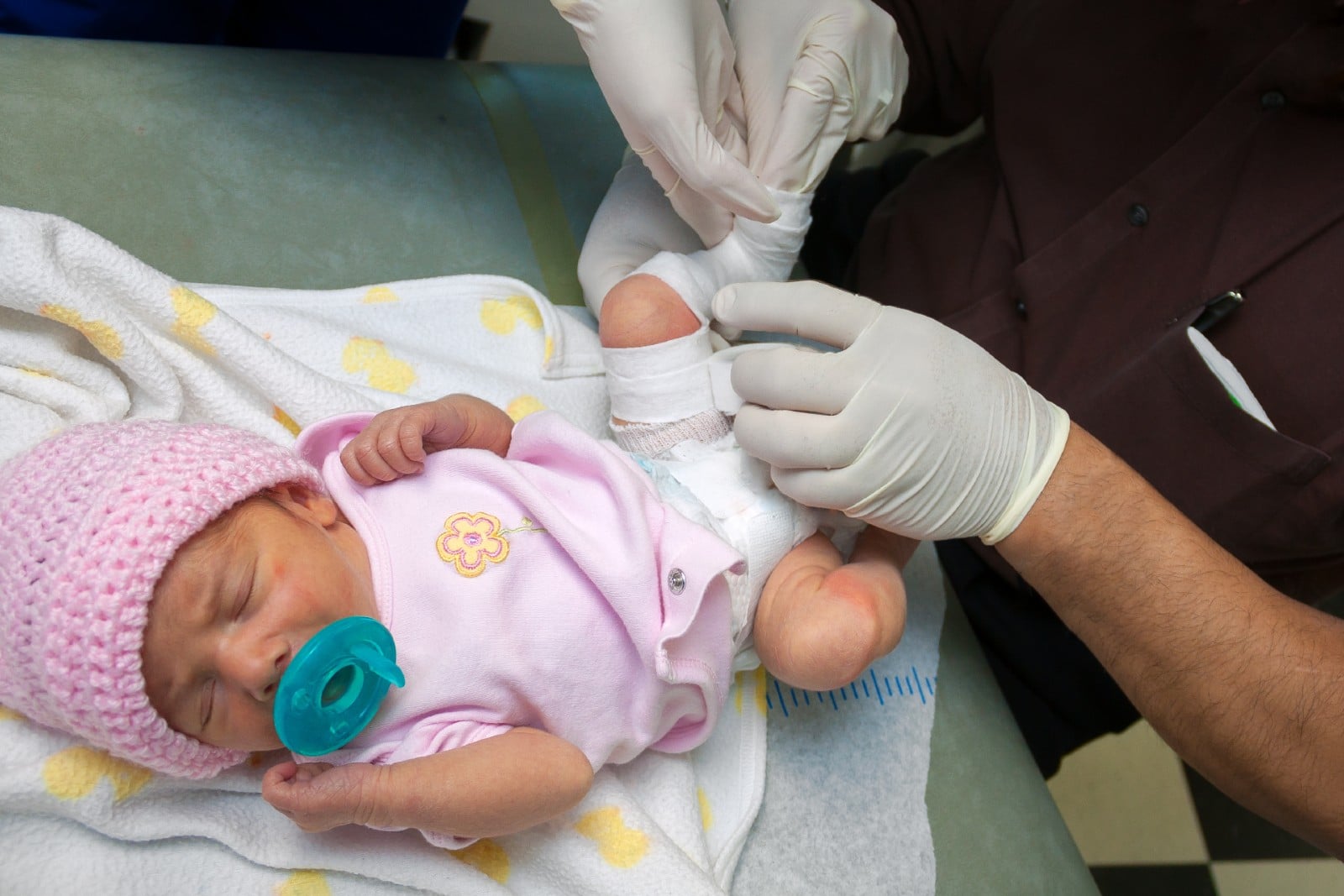Your Child Has Been Diagnosed with Clubfoot Before Birth – What You Can Do
No parent ever wants to hear anything at a prenatal examination other than that their child is perfectly healthy.
If a prenatal examination has determined that your child likely has clubfoot, it can open a floodgate of fears and distress. It is completely normal and understandable to feel this way when you know that your child may face a challenge as soon as they are born.
As experts in treating clubfoot, Southern California Foot & Ankle Specialists is here to provide all the support to clubfoot parents we can. We have helped many parents and their children through these times, and we are happy to help you as well.
Diagnosing Clubfoot Before Birth
If your child’s clubfoot diagnosis was made during a prenatal exam, you are far from alone in this experience. Most cases are diagnosed during a routine ultrasound.
About 10 percent of clubfoot cases can be diagnosed as soon as 13 weeks into a pregnancy. After 6 months, that number rises to about 80 percent of clubfoot cases, and that percentage continues to rise until birth.
About 1 in 1,000 babies born in the United States each year has clubfoot. Considering there are typically around 3-4 million births in the country every year, many other parents had and are having the same experiences and feelings you are right now.
What to Expect on a Clubfoot Journey
Clubfoot should not cause any complications with birth itself. It does not cause your child any pain in the womb, nor will it cause them any pain once they are born. Complications may only arise if your child begins to stand or walk with the condition.
It is important to begin clubfoot correction as early as possible. The earlier into a child’s development that treatment begins, the more easily that the feet and legs can be manipulated to allow bones and soft tissues to grow normally.
Treatment typically begins around 1 month following birth. The most common and highly recommended form of Clubfoot correction is the Ponseti method, a casting technique that slowly realigns your child’s feet over time. This technique also does not cause pain.
The Ponesti method works like this:
- Your child’s foot (or feet) will be gently stretched and repositioned. The entire foot, ankle, and leg are then placed in a cast to hold that position.
- After about a week, this cast is removed, the foot will be repositioned again, and a new cast will be applied to hold this new position.
- This cycle is repeated week by week – usually up to eight readjustments – until the foot has been shifted to the proper outward position.
- Once in the proper position, a child will most often require a minor surgical procedure to lengthen the Achilles tendon.
- Whether surgery is required or not, a clubfoot brace is used to hold the correct position of the foot or feet. This brace takes the form of a bar that is attached between the feet with boots.
- Depending on the circumstances, your child will need to wear the brace most of the time (up to 22 hours per day) until 3-6 months of age.
- Following this first phase of using the brace, it will likely be all right to reduce the amount of time spent wearing the brace to nighttime and naptime.
- After regular check-ins, brace time may be further reduced depending on progress. It is very important to follow your doctor’s instructions very carefully until your child is around 4 years of age in many cases, but the good news is that wearing the braces should not impede your child’s development as they learn to crawl, walk, and play.
It is a long process, but preparing yourself before your child is born can help you feel much calmer and more confident by the time treatment begins. Our own Dr. Nitza Rodriguez personally studied under Dr. Ignacio Ponseti, the creator of this gold standard technique, and is passionate about guiding clubfoot babies and parents through this challenging time.
Do Not Ignore Your Needs as a Parent
Of course, the needs of your baby will always come first, and you would do anything to make sure those needs are met.
However, this is also a time of great stress for you as well. If you try to ignore or bottle your feelings, you only risk causing yourself emotional harm and reducing your ability to provide the best care for your child.
There is absolutely nothing selfish or misguided about seeking support for yourself during this time. In fact, we recommend that all clubfoot parents do so.
You might feel isolated to have this happen to your child and you, but it is important for us to stress once again that you are not alone. There are other parents right now who are at various points along their clubfoot journey, including many at the exact same point you are now.
Many of these parents are part of support groups, happy to share their experiences with you and listen to your own as well. They often meet regularly with their children, giving them a chance to see and play with other children going through the same process.
We can help you find a clubfoot support group. Please note that you do not need to be receiving treatment through us to take advantage of this service. We do it because we have the connections, and we want to see all clubfoot babies and parents receive the support they need.
Contact the Clubfoot Experts
If you are looking for help or support for clubfoot, our Ladera Ranch office is here and ready to help you. Call us at (949) 364-9255 (WALK) to schedule an appointment. We can see you in-office or over telemedicine, if you prefer.

